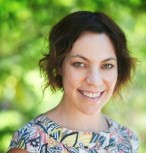DNA reveals the past and future of coral reefs
New DNA techniques are being used to understand how coral reacted to the end of the last ice age in order to better predict how they will cope with current changes to the climate. James Cook Univer

From 2005 to 2022, the main node of the ARC Centre of Excellence for Coral Reef Studies was headquartered at James Cook University in Townsville, Queensland (Australia)








Abstract: Scientists and development practitioners increasingly recognise that change, instability, and uncertainty are inherent in social-ecological systems, and strongly influence human well-being. International to local development policy and practice now emphasises the importance of recognizing, protecting, and building people’s capacities to respond to inevitable change (adaptation), and to drive favourable change (innovation) in order to sustain and improve their well-being. However, few studies focus specifically on the social and gender differentiation of capacities to adapt and innovate. Tackling this knowledge gap is an imperative if we are to achieve more socially inclusive development processes, greater equitability of outcomes, and sustained improvements to human well-being. In this presentation I address this gap through an empirical examination of how gender and social differentiation shape capacities to adapt and innovate within three rural communities in Solomon Islands. I look beyond quantifiable environmental or technological assets, to examine five dimensions of capacity to adapt, and capacity to innovate; assets, flexibility, learning, social organisation, and agency. I highlight how gender and social differentiation within each dimension may be exacerbated or dampened by different development interventions and strategies. These findings provide a socially nuanced understanding of adaptive capacity and capacity to innovate, and provide insights for research seeking to understand well-being within dynamic social-ecological systems.
Bio: Dr Pip Cohen is a scientist for WorldFish, and is an Adjunct Research Fellow at the Centre of Excellence for Coral Reef Studies at James Cook University. Pip’s research largely focuses on understanding the influence of culture, leadership, social networks, demography, economic development, and policy on the governance of social-ecological systems. Her empirical work is focused in the least developed countries of the Pacific, in particular Solomon Islands, Vanuatu and Timor-Leste. In this context her research has employed an interdisciplinary approach to critically evaluate different small-scale fisheries governance modes for ecological, food security and livelihood outcomes. Given Pip’s role in WorldFish, and their emphasis on ‘Research inDevelopment’, her research is conducted in partnership with local communities and governments, concurrent with development activities, and as a result embedded in the development context.
New DNA techniques are being used to understand how coral reacted to the end of the last ice age in order to better predict how they will cope with current changes to the climate. James Cook Univer
A new study on the effects of climate change in five tropical countries has found fisheries are in more trouble than agriculture, and poor people are in the most danger. Distinguished Profess
James Cook University researchers have found brightly coloured fish are becoming increasingly rare as coral declines, with the phenomenon likely to get worse in the future. Christopher Hemingson, a
Researchers working with stakeholders in the Great Barrier Reef region have come up with ideas on how groups responsible for looking after the reef can operate more effectively when the next bleaching
Abstract: As marine species adapt to climate change, their heat tolerance will likely be under strong selection. Individual variation in heat tolerance and its heritability underpin the potential fo
Abstract: The Reef Ecology Lab in KAUST’s Red Sea Research Center explores many aspects of movement ecology of marine organisms, ranging from adult migrations to intergenerational larval dispersal
Abstract: Macroalgal meadows are a prominent, yet often maligned component of the tropical seascape. Our work at Ningaloo reef in WA demonstrate that canopy forming macroalgae provide habitat for ad
Abstract: Sharks are generally perceived as strong and fearsome animals. With fossils dating back at least 420 million years, sharks are not only majestic top predators but they also outlived dinosa
Abstract: Connectivity plays a vital role in many ecosystems through its effects on fundamental ecological and evolutionary processes. Its consequences for populations and metapopulations have been
Abstract: Evolution of many eukaryotic organisms is affected by interactions with microbes. Microbial symbioses can ultimately reflect host’s diet, habitat range, and even body shape. However, how
Abstract: The past few years have seen unprecedented coral bleaching and mortality on the Great Barrier Reef (GBR) but the consequences of this on biodiversity are not yet known. This talk will expl